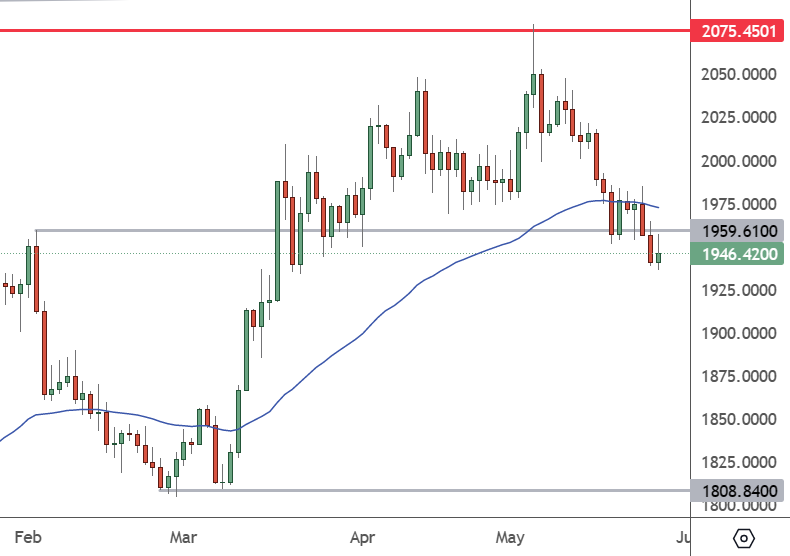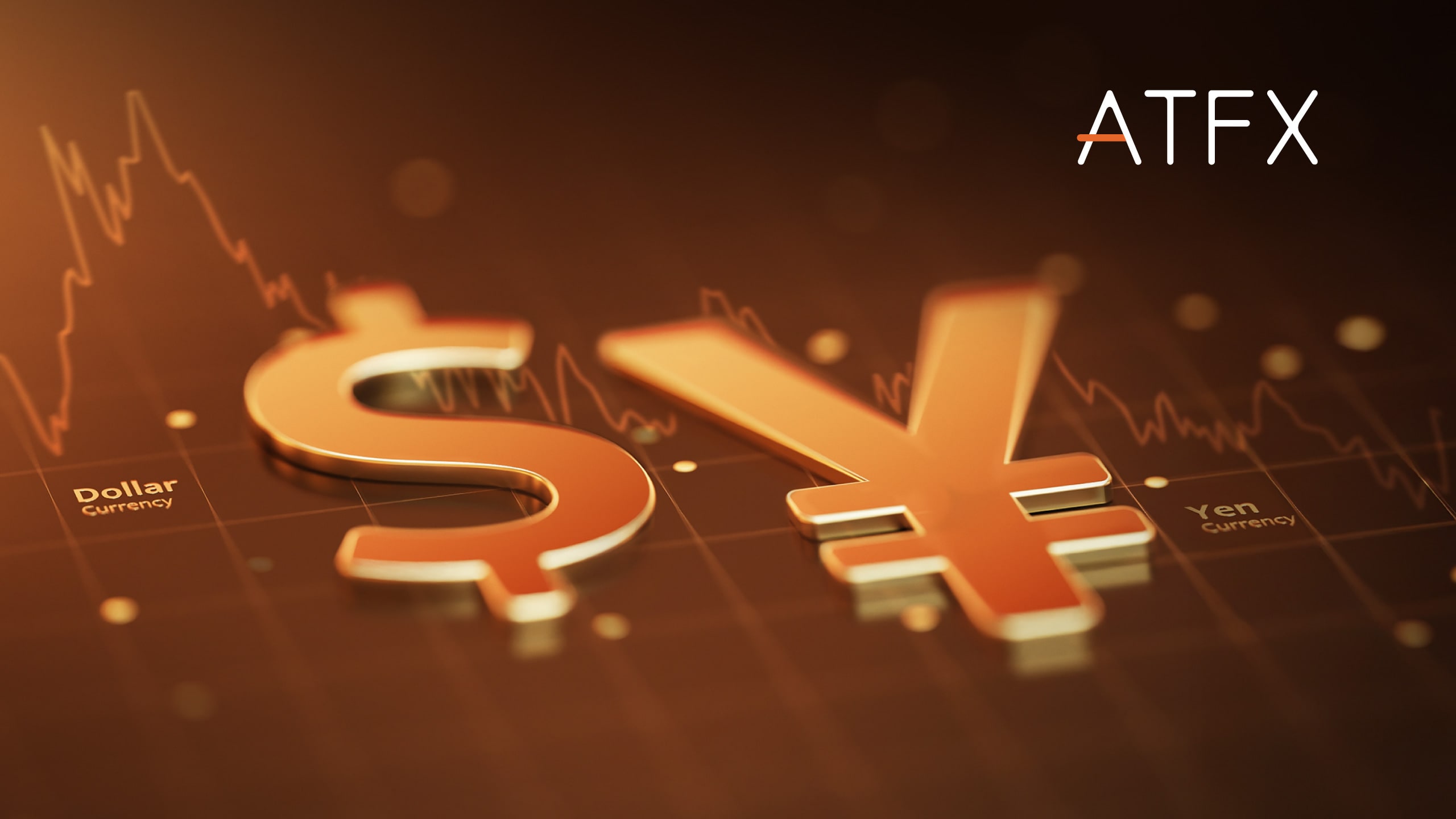The price of gold could suffer on a US debt ceiling deal this week after recent weakness.

Gold – Daily Chart
Gold prices have suffered since the resistance level of $2,075 in May. Last week’s price fell through the $1,960 level and has free roam to drop lower.
Demand for the precious metal among central banks will likely stay strong, even after a record year of purchases, said UBS.
During 2022, central banks bought 1,078 metric tons, which marked the largest yearly demand for gold since records began in 1950. Analysts say it was more than double the 450 metric tons purchased in 2021. Based on first-quarter numbers, central banks are currently on track to buy 700 metric tons this year, UBS estimated, down from 2022 but still above the average of 500 metric tons since 2010.
“We think this trend of central bank buying is likely to continue amid heightened geopolitical risks and elevated inflation,” UBS said. “In fact, the US decision to freeze Russian foreign exchange reserves in the aftermath of the war in Ukraine may have led to a long-term impact on the behaviour of central banks.”
Gold Price Forecast
The US dollar has been the reserve currency for times of stress, and the country’s financial markets are the place to park significant sums. But the recent surge in demand for gold has been seen as further de-dollarization with countries creating their trading agreements and tensions between the US and China.
The continued demand from central banks is one of the reasons UBS thinks that gold will climb to $2,100 per ounce by the year-end, with $2,200 by March 2024. Gold dropped below $2,000 over the past week but is still up 8% yearly.
Another factor that could see additional gold strength is the weakness in the dollar. UBS added that the dollar is set to decline further as the Federal Reserve looks ready to pause its tightening cycle. At the same time, other central banks continue hiking rates.
“Gold has historically performed well when the US dollar softens due to their strong negative correlation, and we see another round of dollar weakness over the next 6-12 months,” UBS said.


